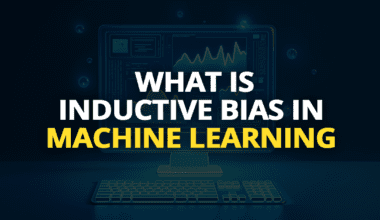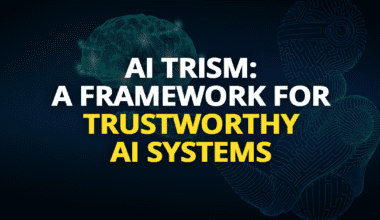Summary: Discover the best Data Science books for beginners that simplify Python, statistics, and Machine Learning concepts. These resources offer clear explanations, real-world examples, and hands-on exercises. Paired with structured learning plans and online communities, they help build foundational skills and confidence for a successful journey into Data Science.
Introduction
Data Science has become a driving force in decision-making across industries, from healthcare to finance. With the global Data Science platform market valued at $103.93 billion in 2023 and projected to soar to $776.86 billion by 2032, growing at a CAGR of 24.7%, mastering Data Science skills is more critical than ever.
For beginners, choosing the right Data Science books is a crucial first step in building a solid foundation. These books simplify complex concepts, making the learning process accessible and engaging. This article highlights the best Data Science books to kickstart your journey into this transformative field.
Key Takeaways
- Choose books that simplify technical jargon and concepts for beginners.
- Focus on resources with hands-on exercises and real-world datasets.
- Ensure foundational topics like Python, statistics, and visualisation are included.
- Learn storytelling and data presentation techniques for impact.
- Enhance learning through exercises, online datasets, and community engagement.
Key Criteria for Selecting a Data Science Book
Choosing the right Data Science book can be overwhelming, especially for beginners. The ideal book should break down complex concepts into digestible chunks, offer hands-on learning opportunities, and align with the tools you’ll use. Let’s explore the key factors to consider before making your pick.
Accessibility: Simplified Concepts for Starters
The best beginner books prioritise clarity over complexity. Look for books that explain technical jargon in plain language and use analogies to simplify abstract ideas. A beginner-friendly book builds confidence by gradually introducing concepts without overwhelming the reader.
Coverage of Foundational Topics
A strong foundation is critical in Data Science. Ensure the book covers essential topics such as statistics, basic programming (Python or R), and data visualisation. A good book will also explain fundamental Machine Learning algorithms and their practical applications.
Inclusion of Real-World Examples and Exercises
Hands-on practice solidifies learning. Books that provide real-world datasets, case studies, and step-by-step exercises help you connect theory to practice. These features make understanding how Data Science works in actual scenarios easier.
Compatibility with Beginner Tools and Platforms
Choose a book introducing tools like Python, Jupyter Notebooks, or Tableau. Books that focus on beginner-friendly platforms enable smoother learning and reduce the frustration of complex setups.
Best Data Science Books for Absolute Beginners
In this section, we explore the best Data Science books tailored for absolute beginners. Whether you’re a novice or looking to build a strong foundation, these books offer clear explanations, practical exercises, and actionable insights to kickstart your journey.
“Python for Data Analysis” by Wes McKinney
If you’re serious about learning Python for Data Science, this book is a must-have. Written by Wes McKinney, the creator of Pandas, it is an in-depth guide to data manipulation and analysis using Python. With its practical approach and clear explanations, the book ensures that beginners can easily grasp even advanced concepts.
Key Features:
- Comprehensive coverage of foundational Python libraries like Pandas, NumPy, and Matplotlib.
- Step-by-step tutorials with real-world Data Analysis examples.
- Emphasis on data cleaning, wrangling, and visualisation techniques.
- Suitable for those with minimal coding experience.
- Includes datasets to practice as you progress.
???? Pro Tip: Pair this book with online datasets to enhance your learning experience through hands-on practice.
“Data Science for Dummies” by Lillian Pierson
Sometimes, you only need a straightforward guide to understand complex jargon. This book simplifies Data Science concepts, making it perfect for those with no coding or mathematical background. Its conversational tone and beginner-friendly approach make it a go-to resource for anyone entering the Data Science world.
Key Features:
- Breaks down technical terms into easy-to-understand language.
- Covers a wide range of topics, including big data, AI, and Machine Learning.
- Includes hands-on activities to reinforce learning.
- Provides real-world use cases for better understanding.
- Suitable for non-technical readers and professionals.
“Practical Statistics for Data Scientists” by Peter Bruce and Andrew Bruce
Statistics is the backbone of Data Science, and this book makes it accessible, practical, and even enjoyable. It bridges the gap between theory and real-world application by teaching statistical concepts hands-only using Python and R.
Key Features:
- Comprehensive coverage of key topics like regression, sampling, and hypothesis testing.
- Demonstrates implementation of statistical methods in Python and R.
- Practical examples and exercises for better retention.
- Offers real-life analogies to simplify complex ideas.
- Ideal for beginners transitioning to intermediate-level skills.
???? Real-Life Analogy: Think of statistics as the compass for your Data Science journey—it ensures you’re heading in the right direction.
“Storytelling with Data” by Cole Nussbaumer Knaflic
Data alone isn’t enough; it’s the story behind the numbers that creates impact. This book focuses on the art of crafting compelling narratives with data, teaching you to present insights clearly and engagingly.
Key Features:
- Teaches effective data visualisation techniques.
- Covers tools like Excel, Tableau, and Python libraries.
- Emphasises the importance of storytelling in data presentations.
- Includes real-world examples and case studies.
- Ideal for building skills in dashboards and data-driven decision-making.
???? Pro Tip: Use this book to refine your presentation skills and make data come alive in meetings and reports.
“Think Stats” by Allen B. Downey
This book is a great starting point for beginners who want to understand statistical concepts through programming. Using Python as a tool, it provides clear explanations and practical coding exercises to solidify their understanding.
Key Features:
- Engagingly introduces foundational statistical concepts.
- Covers Bayesian statistics in a beginner-friendly manner.
- Offers hands-on coding exercises for practice.
- Focuses on Python programming for statistical analysis.
- Suitable for self-learners and classroom use.
“Introduction to Machine Learning with Python” by Andreas C. Müller and Sarah Guido
Machine Learning is a critical component of Data Science, and this book provides a beginner-friendly introduction. It focuses on practical implementation using Python, making it an excellent resource for novices.
Key Features:
- Covers essential Machine Learning algorithms.
- Explain how to use Scikit-learn for implementation.
- Includes hands-on examples for immediate application.
- Focuses on practical problem-solving with real datasets.
- Provides an accessible introduction to complex concepts.
???? Pro Tip: Pair this book with Kaggle datasets to practice your skills in a competitive environment.
“Numsense! Data Science for the Layman” by Annalyn Ng and Kenneth Soo
For those intimidated by the mathematical complexity of Data Science, this book offers a refreshing and simplified approach. It breaks down algorithms into easy-to-understand concepts with visuals and real-world examples.
Key Features:
- Provides a math-light introduction to Data Science.
- Explains algorithms with clear visuals and examples.
- Includes reference sheets for quick understanding.
- Offers practical insights without technical jargon.
- Great for those exploring Data Science casually or professionally.
“The Data Science Handbook” by Carl Shan, William Chen, Henry Wang, and Max Song
This book offers a unique perspective by compiling interviews with leading Data Science professionals. It’s an inspiring resource for anyone looking to understand the career paths and challenges in the field.
Key Features:
- Features insights from 25 top Data Scientists.
- Provides practical advice for career development.
- Explores real-world applications and industry trends.
- Offers motivation and guidance for aspiring Data Scientists.
- Focuses on the human side of Data Science.
“Doing Data Science” by Cathy O’Neil and Rachel Schutt
This book provides a structured introduction to the subject based on Columbia University’s Introduction to Data Science course. It covers a mix of algorithms, models, and data visualisation techniques.
Key Features:
- Combines theory with practical case studies.
- Includes real-world code examples for clarity.
- Covers foundational topics in a beginner-friendly way.
- Offers insights from experts with years of experience.
- Ideal for those looking to transition into Data Science.
“The Art of Data Science” by Roger D. Peng and Elizabeth Matsui
This book focuses on analysing and discovering insights from data. It’s a practical guide for beginners and managers, offering strategies for successful data projects.
Key Features:
- Emphasises the exploratory process of Data Analysis.
- Provides real-world examples from professional experiences.
- Discusses common pitfalls in data projects.
- Suitable for both analysts and decision-makers.
- Encourages critical thinking in data interpretation.
Tips for Getting the Most Out of These Books
Reading a book on Data Science is just the first step; real learning happens when you actively engage with the material. To make the most of these books, it’s essential to have a plan, practice consistently, and connect with others in the field. These strategies will ensure that you understand and apply the concepts effectively in real-world scenarios.
Follow a Structured Reading Plan
Don’t rush through the material; pace yourself with a structured plan. Break the book into manageable sections and set specific goals for each week. Focus on understanding one concept at a time before moving to the next. Use chapter summaries to reinforce your learning and make notes for future reference.
Practice with Exercises and Online Data Sets
Theory is important, but practice is where you truly grasp Data Science. Work through the exercises in the books and explore additional datasets online, such as those on Kaggle or UCI Machine Learning Repository. Hands-on practice helps solidify concepts and builds confidence in applying them to real-world problems.
Join Online Communities for Peer Support
Learning doesn’t have to be a solo journey. Engage with online communities like Reddit, Stack Overflow, or dedicated Data Science forums. Discussing challenges, sharing insights, and getting feedback from peers can enhance your understanding and keep you motivated throughout the learning process.
In Closing
Mastering Data Science starts with the right resources. Beginner-friendly books simplify complex concepts, making learning engaging and accessible. Whether you’re exploring Python, statistics, or visualisation, these books provide practical exercises and real-world examples to build foundational skills.
Paired with hands-on practice and peer support, they ensure a solid understanding of Data Science. By selecting resources aligned with your goals, you’ll confidently navigate this transformative field. Begin your journey today with curated books designed to make Data Science approachable and enjoyable, setting the stage for a successful career in data-driven decision-making.
Frequently Asked Questions
What is the Best Data Science book for Absolute Beginners?
“Python for Data Analysis” by Wes McKinney is an excellent starting point. It teaches Python’s foundational libraries, such as Pandas, NumPy, and Matplotlib, while emphasising data cleaning, manipulation, and visualisation. The step-by-step tutorials and real-world examples make it beginner-friendly, even for those with minimal coding experience, ensuring practical understanding.
Are there Data Science Books that Focus on Storytelling and Visualisation?
Yes, “Storytelling with Data” by Cole Nussbaumer Knaflic is a standout choice. It emphasises the importance of clear, impactful data narratives. The book introduces visualisation techniques using tools like Tableau, Excel, and Python libraries, supplemented with case studies to enhance understanding and improve data presentation skills effectively.
How Can I Effectively Learn from Data Science Books?
To maximise learning, follow a structured plan. Divide chapters into manageable sections and practice exercises with real-world datasets from sources like Kaggle or UCI. Reinforce concepts by taking notes, revisiting summaries, and engaging in online communities like Reddit or Stack Overflow for feedback, discussion, and motivation.




